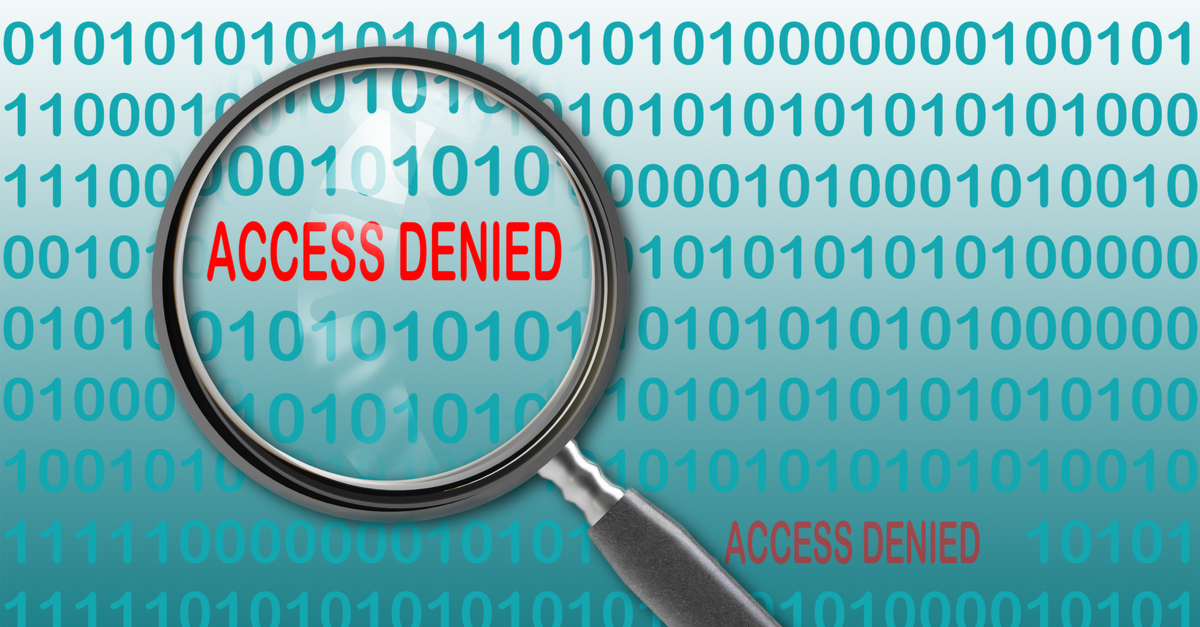7 Benefits Of Automating User Access Reviews In PeopleSoft
When PeopleSoft users transition to different roles or offboard, their previous roles and accounts in the system often remain intact. These unused roles and authorizations could potentially lead to business and security risks (e.g., compromised credentials). Role clean-ups and user access reviews in PeopleSoft play a significant role in preventing data security threats and Segregation of Duty (SoD) violations. This prepares organizations to adopt automation solutions that can assess risks and violations based on current authorizations and the actual usage of a particular role or account in PeopleSoft applications.
Challenges With User Access & Roles In PeopleSoft
Traditional PeopleSoft application capabilities do not produce the required level of granularity and visibility into how users access and engage with data. When it comes to reviewing user access and roles, PeopleSoft applications often fail to purge inactive accounts of employees who have offboarded or shifted to a different role or account. These redundant accounts often lead to exposed vulnerabilities and pose a threat to data security.
Companies need automated solutions to conduct periodic user access reviews in PeopleSoft that confirm the presence of adequate controls to restrict access to sensitive transactions and data.
7 Key Benefits Of Automating PeopleSoft User Access Reviews
PeopleSoft user access reviews are often labor-intensive and prone to human errors due to the vast amount of data that needs to be manually examined. Automating the access review process offers the following benefits to organizations:
1. SoD Conflict Elimination:
Granting more access than a user needs to save time is one of the leading causes of SoD conflicts in PeopleSoft and puts the organization at risk for potential fraud. Automating user access reviews helps strengthen SoD controls, and multiple security tests ensure there are no conflicts.
2. Improving Data Security Without Limiting Productivity:
Introducing “context” to user access determines “who” is authorized to access “what” PeopleSoft data, “when,” from which device, and “why.” User access reviews combined with periodic role clean-ups allow or restrict actions such as report and query exports based on the context of user access.
3. Strengthen Data Privacy Measures:
Traditional Role-Based Access Controls (RBAC) usually limit your ability to restrict user access to sensitive data fields and transactions. Companies adopting Attribute-Based Access Controls (ABAC) can enable automation of policy enforcement into their access controls and prevent violation of policy requirements.
4. Prevents Privileged Access Misuse:
Automating user access reviews for privileged accounts helps track all the user access data points to identify off-peak access, unknown IP address access, and access from strange locations. Enhanced access controls with dynamic authorization policies help prevent privileged access misuse in PeopleSoft.
5. Enables Audit-Readiness:
Organizations with automated user access reviews can streamline access request workflows, mitigate access risks, and capture a complete audit trail of access requests and approvals. This helps generate audit-ready reports for review by internal and external auditors with the least manual effort.
6. Reduced Manual Effort & Complexity:
Automating role and access reviews eliminate the need for manual reporting and investigation of false positives. This further helps with automated analysis across multiple platforms.
7. Emergency Access:
With automated reviews, organizations can further automate the release of access rights for emergency (firefighter) access, limiting the scope for a specific task, and revoking user access after custom-defined time frames.
How Appsian Helps PeopleSoft Customers Automate User Access Reviews
Appsian’s automated solution helps PeopleSoft customers reduce the time taken for user access reviews from months to hours. Here’s how we help them improve efficiency while bolstering data security and privacy:
- Behavioral Profiling: Appsian learns and displays actual usage of all roles, helping managers determine the necessity of each role and user access. This helps analyze unused roles and user access, and detect deviations indicating potential fraud in real time.
- Cost Optimization: Automating PeopleSoft user access review and certification process significantly reduce overhead costs and human error risks. Teams can simply manage these processes via a simple web browser without involving an expert.
- Audit-Readiness: Appsian enables customers to meet auditor requirements with well-documented control processes. By reducing manual work to near zero, our solution allows internal auditors to focus on more high-risk authorization access and other potential security risks.
- Intelligent Automation: This helps detect SoD conflicts, sensitive access, and potential policy violations for existing PeopleSoft users through business-oriented rules mapped to specific applications’ authorization models.
Schedule a demo with our experts to make your user access reviews a seamless process.
Put the Appsian Security Platform to the Test
Schedule Your Demonstration and see how the Appsian Security Platform can be tailored to your organization’s unique objectives
How to Simplify Your JD Edwards Access Reviews
What is a Periodic Access Review?
Access review or recertification is an IT General Control procedure that involves auditing all user access roles, privileges, and combinations of roles to determine if they are correct and adhere to the organization’s internal policies and compliance regulations. Most organizations only perform this audit of user access once a year, although some may review their high privileged user accounts more frequently. From a compliance point of view, it is critical for organizations to provide JD Edwards users with the least amount of access required to perform their tasks and that existing roles do not create conflicts that could lead to fraud or financial misinformation. This makes access reviews a key activity to mitigate risk, prevent fraud, and meet compliance.
Why JD Edwards Access Reviews Are Important
Most business applications have a role-based access control (RBAC) security model to assign roles and authorizations. However, JD Edwards user roles pose a specific problem when it comes to access reviews. Within JD Edwards (JDE), multiple roles assigned to a single user can be viewed in the “sequence manager.” But there is a known issue associated with this.
The permissions of roles higher in the sequence will take priority over the permission of roles lower in the sequence. Unfortunately, this means JD Edwards customers can end up with unexpected access results when granting multiple JDE roles to a user. This is one of the many RBAC issues that necessitate a third-party security solution to assist in managing this type of “inherited permission risk.”
The assignment of multiple roles in any business application requires thorough testing to effectively manage the inherited permission risks. Unfortunately, most business applications, including JD Edwards, lack effective access testing across multiple roles. Periodic access reviews help identify such roles and provide business managers with the necessary information to de-provision or segregate users to mitigate risk and prevent fraud.
Simplify JD Edwards Access Reviews with Automation
While most organizations conduct access reviews at least once a year, it is usually a time-consuming manual process where security and compliance teams have to constantly initiate the process and continuously follow up with the business manager to fill in their review sheets. At the end of the review, business managers have to wade through volumes of unintelligible data and try to get any meaningful information to sign it off.
However, an automated access review solution can take away a majority of the manual work required to administer the reviews and provide data in organized reports that are easy to comprehend and draw insights from. Some of the benefits of deploying an automated review solution include:
Easy to Execute: Automation simplifies and accelerates the review process and provides accurate, intelligible information. Once you identify the business owners who are responsible for carrying out the reviews and set them up as approvers, they can be automatically notified when a review has been initiated, and they will be required to review all the items that affect their role(s).
Maintains Audit Trail: JD Edwards users can accept or reject the changes and provide an explanation for their decision within the review tool. This ensures that a complete audit trail is maintained, showing who approved/rejected what and when. Users can also use filters to check which reviews are pending and complete them on time.
Reports to Satisfy Auditors: Instead of maintaining data on spreadsheets, making it extremely difficult for internal and external auditors to check for compliance violations, an automated solution shows complete information, including current and previous values and who approved them. This helps you quickly access the required information and provide answers to external auditors.
Automate Your Access Review with Appsian
Appsian helps organizations consolidate the access review process for all their business systems into one centralized point. This ensures consistent performance across all business applications to increase efficiency and lower your costs. Appsian’s automated access review solution enables you to produce review reports with the touch of a button and present business managers with clear information that they can easily understand and review. The solution also captures data on approvals, rejections, and explanatory notes directly into your JD Edwards system, allowing you to quickly and easily produce evidence for your auditors whenever needed.
Download the Appsian Periodic Access Review Data Sheet to learn how you can save time, effort, and cost by automating your JD Edwards user access reviews.
Put the Appsian Security Platform to the Test
Schedule Your Demonstration and see how the Appsian Security Platform can be tailored to your organization’s unique objectives
How Automation of Oracle EBS Access Review Helps You Save Time and Cost
Oracle EBS applications may have hundreds or even thousands of users logging in daily to access data, generate reports, and perform transactions. These users have multiple roles with varying levels of authorizations that keep changing depending on their job requirements. From a compliance and security point of view, it is essential for any organization to know who has access to what. The purpose of a periodic access review is to first ascertain this data, analyze it, and make informed decisions about user roles, authorizations, and the various risks involved with access. While the process might be straightforward, it can be very time-consuming. This is where automation can make a significant difference to your access review process.
Why Access Reviews Are Tedious
For most organizations, a user access review exercise is done at least once a year. Usually initiated by the internal audit department, the access review process requires business owners to review the Oracle EBS access rights of their respective teams. As a result, the process is highly manual, cumbersome, and time-consuming.
Business owners need to fill out documentation that involves fields like usernames, employment status, role information in relation to the tasks, and access rights. Now imagine going through this process for every single Oracle EBS application and user in the company. For large enterprises, the user numbers could easily be in the thousands. The result? Business managers end up signing off on documentation that they don’t fully understand. And there is a real possibility that the data is simply not accurate.
The next part becomes even more complex when business owners, security teams, or auditors navigate through the pile of data collected to get any meaningful information. The entire process is a huge administrative overhead that ultimately does not deliver enough value for the time invested.
Streamline Oracle EBS Access Reviews with Automation
When you have a large number of users accessing various Oracle EBS applications, the periodic access review process can be a substantial administrative undertaking. A viable solution to this challenge is deploying an access review automation solution that reduces the manual work, eases the process for business managers, and provides data that is useful for your security and audit teams.
Benefits of User Access Review Automation
Reminders: Let’s face it. Business managers have a lot on their plate already. Conducting an access review is not really on the top of their to-do list. Automation allows you to send out reminders to all relevant business managers and reviewers to undertake reviews. Reviewers can also be informed about any open reviews that need to be completed. This reduces the administrative burden of keeping tabs on the reviews and following up on the review status.
Directly Review Uploads: With an automated solution, your reviewers can directly update their assignments as they check them. They no longer need to send the updated review forms to IT staff, making the process simpler for both parties. Your IT and audit teams also have a full view of all completed and pending reviews.
Audit and Risk: Since the process is automated, a complete audit trail of the review is maintained. Any de-provisioning required because of a review can also be fully automated. This helps satisfy your internal auditors and makes data readily available for external auditors. Also, the user access data collected during the review can be directly plugged into risk management solutions to assess application risk, data risk, and compliance levels.
Overall, automation allows you to simplify and streamline your Oracle EBS access review process. It reduces the administrative burden of multiple departments that are involved. As a result, companies can save time and costs while extracting reliable access data that can be used to make critical decisions to achieve compliance and mitigate risk.
Automate Oracle EBS Periodic User Access Reviews with Appsian
Appsian’s Periodic Access Review is an automated access review solution that integrates with your Oracle EBS applications to provide a seamless review experience for all stakeholders. It eliminates manual processes and allows you to undertake Process Owner, Supervisor, and custom reviews of Oracle EBS users.
With automated reminders and escalations built-in, you can conduct multiple reviews at any time, resulting in substantial time and cost savings. The solution also maintains a complete audit trail to provide evidence for your auditors. As well as full visibility of risk so that better, more informed decisions can be made during the review process.
Schedule a demo with our Oracle EBS experts to understand the automated review process and how it can simplify your user access reviews.
Put the Appsian Security Platform to the Test
Schedule Your Demonstration and see how the Appsian Security Platform can be tailored to your organization’s unique objectives













